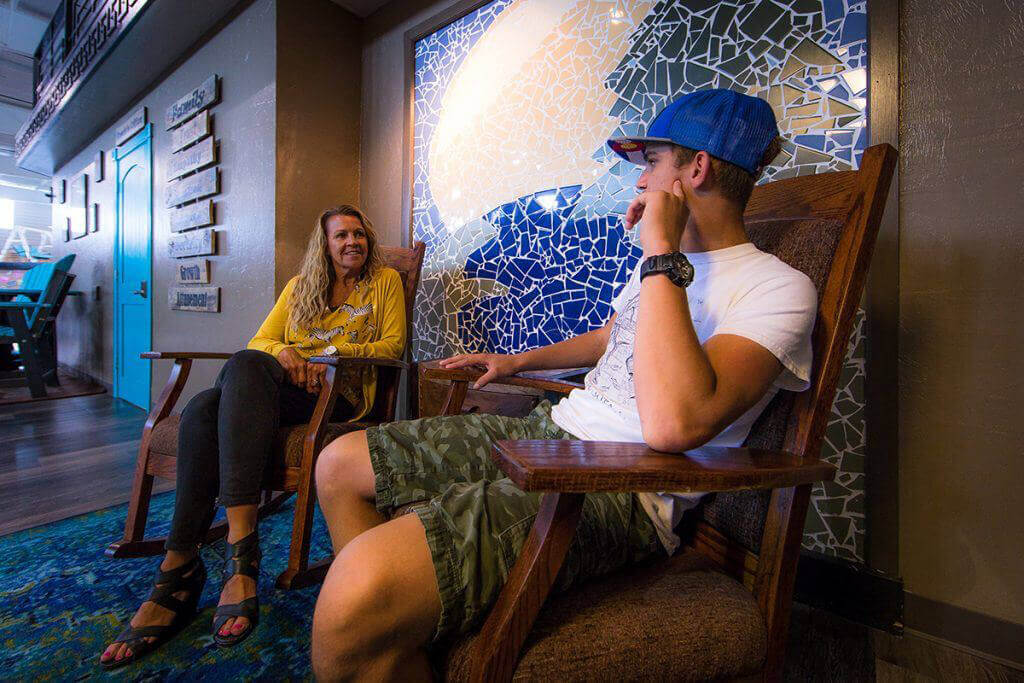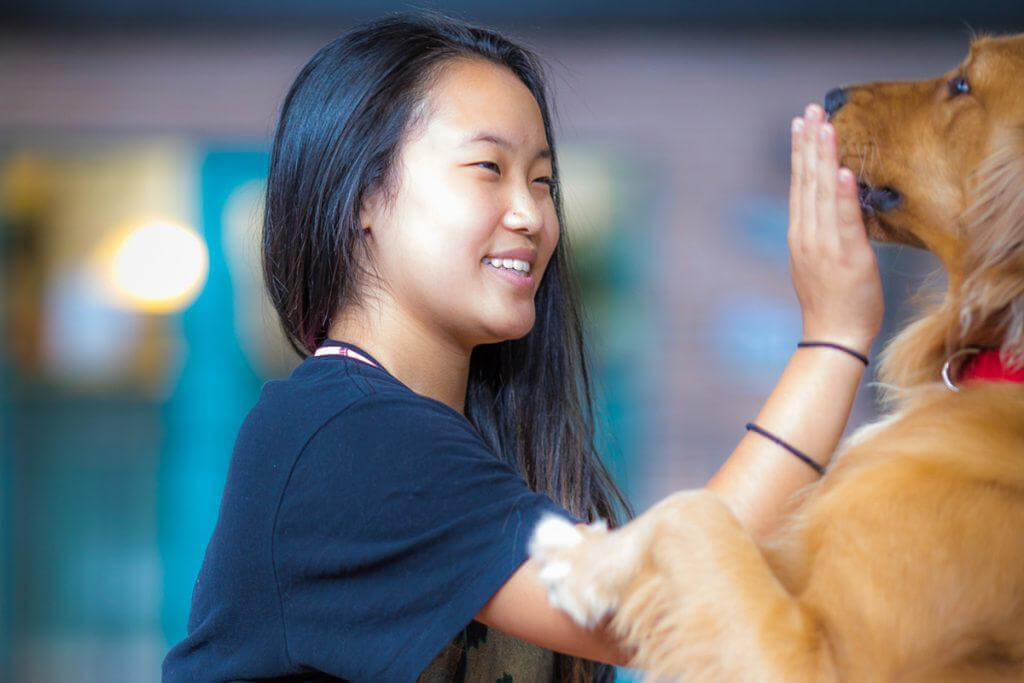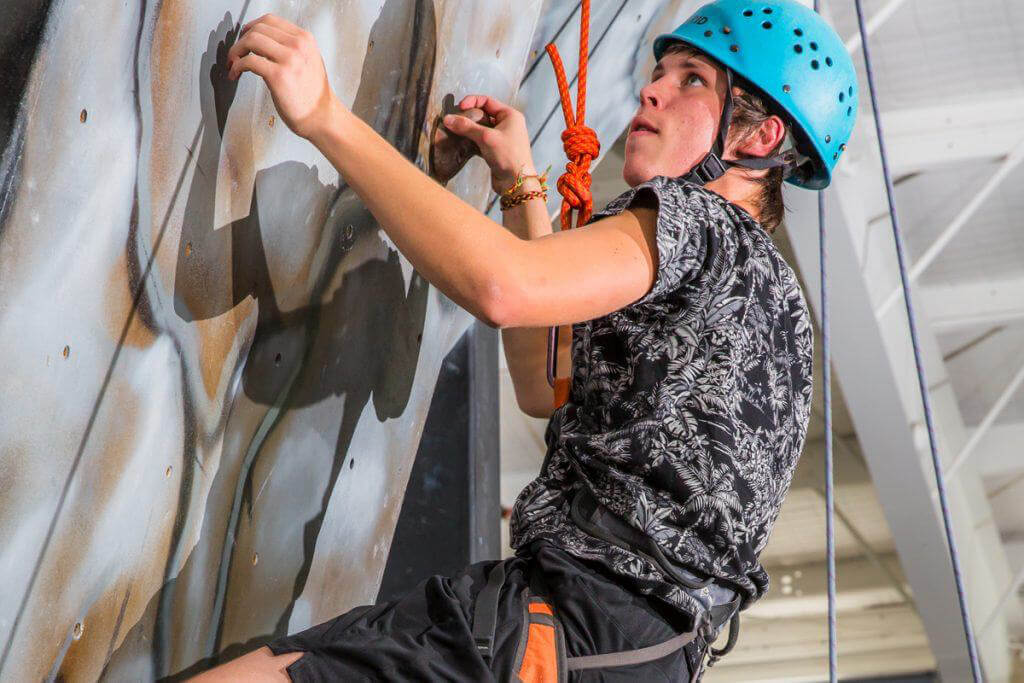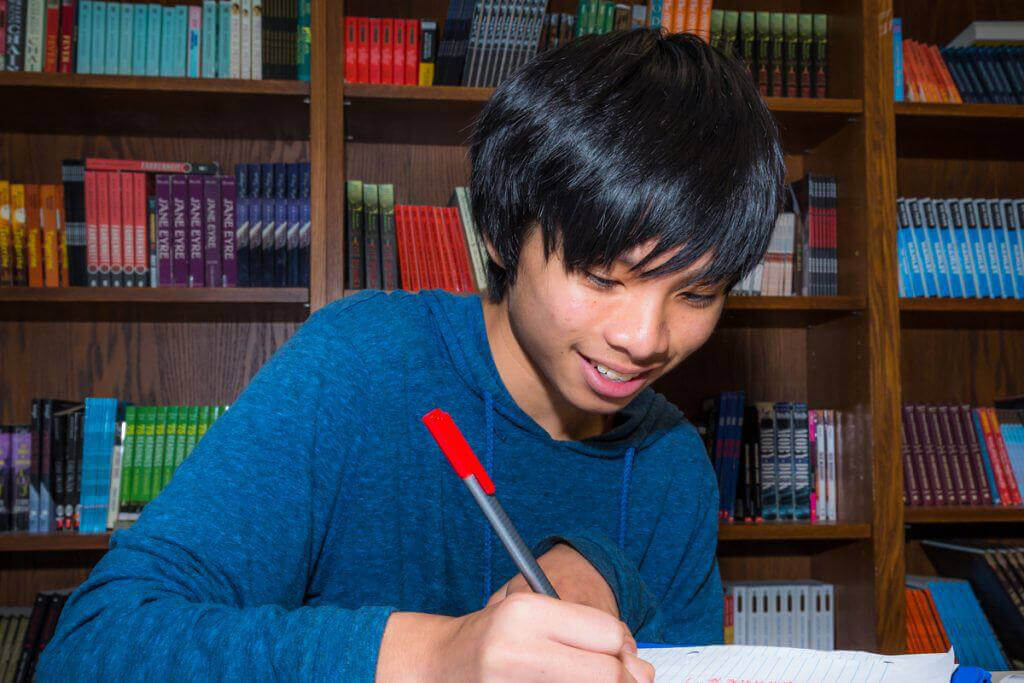Clinical Therapy
The Calo therapeutic model is based on developmental research and establishes that therapeutic relationships are the most effective and efficient means of creating a meaningful connection, trust, reciprocity, trauma integration, and restoring of self-worth. Its fundamental components are based on the principles of commitment, acceptance, security, and attunement that lead to co-regulation and joy.
Calo students and families receive a customized care plan that includes individual, group, family therapies as well as education, process, and support groups.

Our families are the heart of our program that’s why we include family therapy, parent support groups, family visits and parent education groups as essential components of our residential care. We even offer supplemental family intensives for those families who need or want extra support. We believe the family system and especially the role of parents/guardians is critical in helping students find a secure base of healthy relationships and long-term healing.
We offer supplemental family intensives encouraging regular phone calls to home and, as student’s progress, therapeutic home visits. We consider this an important and necessary step for growth. You will work with your treatment team to design a customized plan that aligns to your needs and program guidelines to ensure a positive experience for all.

Calo's state-of-the-art canine program is an integral part of our student's experience. Our teenagers have the opportunity to parent, foster and/or adopt a canine. Through this deep relationship with a golden retriever, our students experience trust and empathy while learning how to bond with and care for someone external to themselves. As the student's emotional life enriches we help students transfer this experience to caregivers and parents. We call this Transferable Attachment. The very core lesson that countless conversations and traditional talk therapy never taught a student over the years is finally discovered experientially as a student is vulnerable to a loving, safe animal – “If my parents love me unconditionally like the canine, then I can feel safe. I can begin to trust that they won't leave me, hurt me or intentionally do harm.”
Students are automatically enrolled in the Canine Therapy Program upon admission to Calo. All students interested in fostering and/or adopting a Calo canine will complete sequential requirements leading up to fostering and/or adopting a Calo canine. This process is similar in many ways to the human foster/adoption experience and closely resembles the family services model many of our parents and/or students have experienced.
Neurotherapy
Neurofeedback (NFB) is electroencephalography (EEG)-biofeedback, it measures electrical brain-wave activity then transforms the frequencies into a digital signal which allows a computer to feed back the information to a student through video and sound. Its effect is that it helps to treat various psychological and physical disorders by shaping the way the brain behaves. This shaping improves the efficiency of the brain and provides the ideal functioning for healing and development to occur.
NFB is a noninvasive therapy that takes about 20-30 minutes each session. NFB has demonstrated effectiveness in treating: aggression, depression, anxiety, Reactive Attachment Disorder (RAD), sleep disturbances, ADHD, PTSD, and so much more. NFB training also helps alertness, attention, emotional regulation, behavior, cognitive function and mental flexibility. The training produces a measurable physiological effect on the brain. Once these changes are practiced and learned, the effects tend to hold, for many problems. As the brain learns to improve its own regulation, it often reduces reliance on medications and continued NFB training. Sometimes NFB allows medications that weren't working well to work better
The Calo Adventure Program is based on the belief that our students need to experience safe, trusting relationships by highly trained adventure staff and coaches to create and reinforce a sense of worth. Calo Adventure Therapy incorporates experiential learning at the heart of how we create growth opportunities for our students.
The program is designed to provide students the opportunity to challenge negative core beliefs, as well as gain mastery and self-confidence. Students are trained for a 100-mile bike ride on the Katy trail in Missouri through weekly fitness exercise routines and cycling excursions around campus. We also utilize weekly Ropes Course and other Adventure Activities culminating in a camping trip or “Engineered Experience”. Service projects are also incorporated throughout the year.

Milieu refers to the therapeutic environment and setting for which students spend most of their time. The milieu is considers the most significant part of their experience in practicing and reinforcing the change process.
The advantage of residential care is the safely and strategically controlled environment. Calo provides consistent and reliable structure to control the variables which are impossible to control in a traditional “Home” environment. All waking and even sleeping hours are controlled and largely predictable. Music, friends, dress, language, etc. is managed and leveraged to create change. We create an atmosphere, what we call the "milieu," that is largely devoid of negative influence. Simply put, we take away as much of the bad as we can and create relationships that are profoundly meaningful and that can, absent so many of the teenage distractions, create a desire for internal change.>
Virtually all residential treatment centers provide formal therapy. The differentiating factors are often found within the uniqueness of the therapeutic environments. Our milieu is what distinguishes us from all other approaches. Using a guiding model of treatment, canines (transferable attachment), recreation therapy, child-focused academics, the student community, and amazing staff come together to form the essence of the Calo experience.
Academics

Calo has a fully accredited, teacher led high school that offers a full range of core subjects and electives. Using our relationship-based approach, we are committed to helping our students become a more self-aware learner who is comfortable in an academic setting.
We provide differentiated instruction in a classroom setting led by Missouri-certified teachers. Our small class sizes of 6-10 students allow our teachers, coaches, and tutors to really get to know our kids. Our staff of seven teachers includes four who are dual-certified in special education and their subject matter content. One of our special education teachers is certified in reading instruction, and is available to work with students individually or in very small groups.
We provide differentiated instruction in a classroom setting led by Missouri-certified teachers. Our small class sizes of 6-10 students allow our teachers, coaches, and tutors to really get to know our kids. Our staff of seven teachers includes four who are dual-certified in special education and their subject matter content. One of our special education teachers is certified in reading instruction, and is available to work with students individually or in very small groups.
Continuing Care Program
Continuing Care is designed to provide a step-down transition from the intensive residential treatment setting to the home environment. Prior to graduation, the therapist leads the family in developing an extensive plan for life after Calo. This plan requires the assembly of a “Success Team” which serves to establish support, accountability, and meaningful relationship back in the student's community. This is ultimately accomplished through the transference of accountability and emotional intimacy of the residential therapist to the family and support system within the home community. The therapist performs an in-home-visit (approximately 1.5 days) where personal meetings with resources (school counselor, outpatient therapist, teachers, etc.) become an opportunity to create accountability, sensitivity, and empowerment, within those environments and relationships. The in-home-session also serves as the first meeting of the Success Team where expectations for involvement and interaction are established and is focused on utilizing the trust, intimacy, and relationship established with the therapist to make a transition to interdependent living in the home environment.
